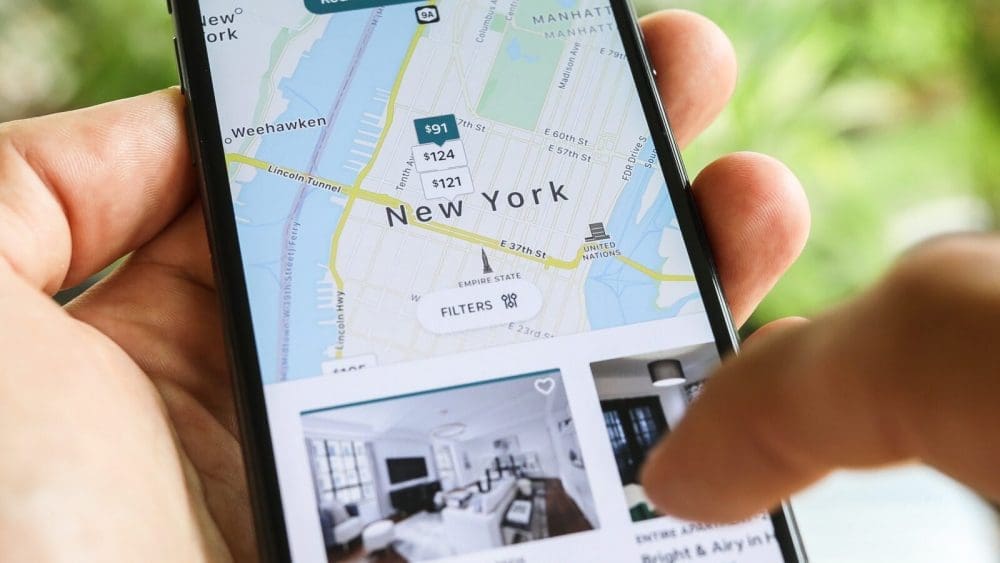New York City has been working alongside booking service platforms like Airbnb to implement stringent regulations on unregistered short-term apartment rentals. So, what is there to know about New York’s Airbnb ban?
In early 2022, New York City introduced the Short-Term Rental Registration Law. Under this law, hosts offering short-term rentals are mandated to register with the Mayor’s Office of Special Enforcement (OSE). Additionally, the law forbids booking service platforms from facilitating transactions for unregistered short-term rentals. The law went into effect on September 5.
Moving forward, Airbnb hosts must refrain from renting out an entire apartment or home—instead, renting out only a portion of the residence for guests to stay in. This model was actually how Airbnb was originally designed to operate, but as bigger profits were being made through whole-home rentals, Airbnb changed around their game plan.
New York City’s reason for the rule change is actually quite simple. Many real estate investors simply buy up available homes, renovate them and turn them into year-round rentals for visitors to the city. This not only goes against the original intentions of the service, but it also takes away available units from people simply looking for a place to live—driving up costs in the process. If left to fester, critics of Airbnb and other short-term rental services believe that the prices would reach a point where only investors are able to afford the homes. Homes that they may never even step foot in. While thousands of people struggle to find a home, real estate tycoons are allowed to own dozens of properties solely as revenue generators.
Airbnb labeled New York City’s rules a “de facto ban,” arguing that short-term rentals don’t worsen housing availability or affordability issues and benefit the local economy by boosting tourism. Airbnb and hosts in New York City took legal action against the city, but the lawsuit was eventually rejected. Whether they will appeal has yet to be seen.
Since the law went into effect, the number of available Airbnb rentals in NYC has dropped nearly 70 percent. In August, 22,000 units were registered on the app, but following September 5, the number of short-term rentals plummeted to just below 7,000, according to Inside Airbnb. In contrast, the number of long-term rentals on the app exploded, with many hosts switching their listings from short-term to long-term.
BREAKING: @Airbnb short-term listings (STR’s) in #NYC drop by 70% after enforcement of the city’s Registration Law starts.
In August there were 22,434 STR’s but only 6,841 on September 5, a drop of 15,593 or 70%. https://t.co/VH2v7v2qji pic.twitter.com/I0wb2hlhVA— Inside Airbnb (@InsideAirbnb) September 6, 2023
Airbnb has announced its decision to cancel and provide refunds for reservations made at (now) unregistered rentals starting from December 2. However, reservations with check-in dates on or before December 1 will still be honored, aiming to minimize disruptions for both hosts and guests.
While this rule change could bring unwanted news for hosts looking to list their unused homes and tourists looking to avoid a hotel stay when visiting the city, NYC believes it will ultimately benefit residents of the city. The hope is that these unregistered listings will soon be back on the housing market, creating availability and carving out a path to more affordable housing.
Proponents of the change hope to see other cities follow suit. Los Angeles, for example, has the highest number of Airbnb listings in the US, with over 40 thousand. LA also has the highest number of homeless in the US, with 70 percent of the homeless population being completely unsheltered.
Whatever side of the New York Airbnb ban you find yourself on, one thing is for certain: The cost of rent is out of control. New York City aims to change that.
Peter Candia is the Food + Drink Editor at New Jersey Digest. A graduate of The Culinary Institute of America, Peter found a passion for writing midway through school and never looked back. He is a former line cook, server and bartender at top-rated restaurants in the tri-state area. In addition to food, Peter enjoys politics, music, sports and anything New Jersey.
- Peter Candiahttps://thedigestonline.com/author/petercandia/
- Peter Candiahttps://thedigestonline.com/author/petercandia/
- Peter Candiahttps://thedigestonline.com/author/petercandia/
- Peter Candiahttps://thedigestonline.com/author/petercandia/


